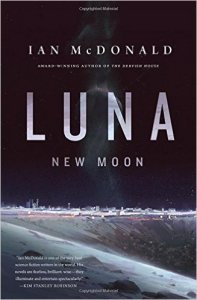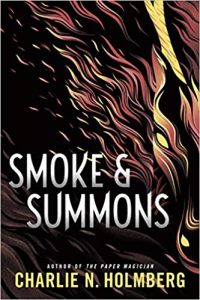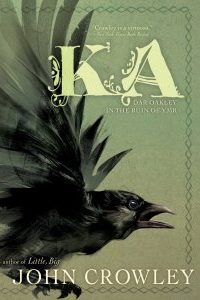Gary K. Wolfe reviews Ian McDonald
Luna: New Moon, Ian McDonald (Tor 978-0-7653-7551-3, $27.99, 416pp, hc) Sept 22, 2015
 As SF writers from Pohl & Kornbluth to Philip K. Dick have often reminded us, along with a fair chunk of US history and even movies like Alien, it doesn’t take much for adventurous frontiers to turn grimly corporate. Nor is this idea limited to SF; the old 1970s TV soap Dallas was implicitly about the corporatization of the American West, with rival dynasties battling it out in boardrooms and bedrooms (wasn’t that even a slogan of the Dallas promos?), and with family squabbles occasionally turning deadly. Ian McDonald has already said in interviews that his new novel Luna: New Moon is ‘‘Dallas on the moon,’’ and that’s a pretty fair elevator pitch for anyone who remembers that ancient show, although some of the family members here act more like Corleones than Ewings, and although the most relentless, merciless, unforgiving character of all is the lunar setting, which McDonald manages to present as utterly boring and absolutely terrifying at the same time. But despite leaving room for sequels and recomplications, McDonald rather seriously underestimates himself in comparing this rich and complex novel to an ancient TV soap.
As SF writers from Pohl & Kornbluth to Philip K. Dick have often reminded us, along with a fair chunk of US history and even movies like Alien, it doesn’t take much for adventurous frontiers to turn grimly corporate. Nor is this idea limited to SF; the old 1970s TV soap Dallas was implicitly about the corporatization of the American West, with rival dynasties battling it out in boardrooms and bedrooms (wasn’t that even a slogan of the Dallas promos?), and with family squabbles occasionally turning deadly. Ian McDonald has already said in interviews that his new novel Luna: New Moon is ‘‘Dallas on the moon,’’ and that’s a pretty fair elevator pitch for anyone who remembers that ancient show, although some of the family members here act more like Corleones than Ewings, and although the most relentless, merciless, unforgiving character of all is the lunar setting, which McDonald manages to present as utterly boring and absolutely terrifying at the same time. But despite leaving room for sequels and recomplications, McDonald rather seriously underestimates himself in comparing this rich and complex novel to an ancient TV soap.
The novel also answers a question that McDonald readers have been asking for some time: after taking a break with his delightful YA Planesrunner series, which international culture would he be examining next after his provocative iterations of the future in India, Brazil, and Turkey? The answer, briefly, is pretty much all of them. His moon colony is resolutely multicultural. The aging family matriarch about whom much of the plot revolves, Brazilian-born Adriana Corto, emigrated to the moon 50 years earlier and established a successful helium-3 mining company, and her chief rivals are the scions of an Australian mining company called Mackenzie. The polyglot moon dialect draws not only on Portuguese and English, but on Chinese, Yoruba, Russian, Spanish, and other languages. Corporate titles are borrowed from Korean, marriage contracts from Arabic, and names of lunar days from Hawaiian. To add to this confusing stew of cultural signifiers (and in a particularly nice touch), the prevalent fashions on the moon are faddishly derived from mid-20th century designer styles like Dior and Fendi.
So McDonald’s moon culture is quite a bit more complex than either the research-and-tourist economy of Clarke’s A Fall of Moondust or the rebellious libertarians of Heinlein’s The Moon is a Harsh Mistress, though there are a few examples of both among his secondary characters. And there are quite a few secondary characters, so much so that keeping all of the intricate relationships and intermarriages among the four ‘‘dragons,’’ the corporations that essentially rule the moon’s economic and legal systems (no criminal law, only contract law, with duels an accepted way of settling differences), straight can be a bit daunting for the first few chapters, even with McDonald’s helpful dramatis personae. But as the plot develops and the pacing steadily accelerates, the characters gain quite a bit more depth than their soap-opera forbears: not only Adriana herself, who provides useful backstory in a few first-person chapters, but her volatile oldest son Rafa; his wife Rachel (of the Mackenzie clan); the daughter Ariel, a gutsy but self-satisfied superlawyer; four other sons (one, Wagner, disowned); and the grandson Lucashino, newly arrived and something of a rebellious teen. This doesn’t even get into other clans like the Mackenzies or the Vorontsovs, or the officers of the Lunar Development Corporation, which more or less owns the moon and whose president (‘‘the Eagle of the Moon’’) is a mostly figurehead chief executive for the entire moon.
The story opens with two events that establish principal recurring themes: the hazardous arrival of Lucashino, which shows us immediately how deadly the environment can be, and an attempt on Rafa’s life using an ‘‘assassin bug,’’ basically a poisoned mechanical fly. Rafa is saved by the most appealing character in the book, Marina Calzaghe, an unemployed ‘‘computational evolutionary biologist’’ who is ‘‘overdrawn at the breath-bank,’’ has to sell her urine for recycling, and lives in what amount to the slums of the kilometer-deep city – the upper levels, where radiation is most hazardous. Her quick thinking gains her a job with the Corto corporation, where she repeatedly establishes her value and becomes the closest thing to a kick-ass heroine the novel has to offer, although it offers a refreshing variety of strong female characters in general. Marina figures in some of the more suspenseful action scenes, such as a race to stake a claim to a newly discovered region of helium-3 and another assassination attempt later on, but she remains acutely aware that it’s her survival instincts, not her science training, that keep her employed. The scientists aren’t the heroes in this bleak landscape and free-for-all economy, and as the novel races toward a surprisingly violent conclusion, you wonder whether the landscape permits any heroes at all.
Luna: New Moon is the best moon novel I’ve seen in many years, but it’s also something of a piece with the recent movement on the part of Paul McAuley, Kim Stanley Robinson, and others to confine novels to the solar system, out of a realistic assessment that this is likely all we’ll have to work with – but McDonald takes this a step further. Possibly the most chilling lines in the book for an SF reader come from Adriana herself, in her own narrative: ‘‘There was no law, no justice,’’ she writes, ‘‘only management. The moon was the frontier, but it was the frontier to nothing. There was nowhere to run.’’ Inasmuch as it challenges one of the cherished master narratives of SF, in which the moon is only a stepping-stone, and despite what it owes to the tropes of ’70s-era social melodrama, McDonald’s novel has some formidable SF stingers not far beneath its densely textured surface.





